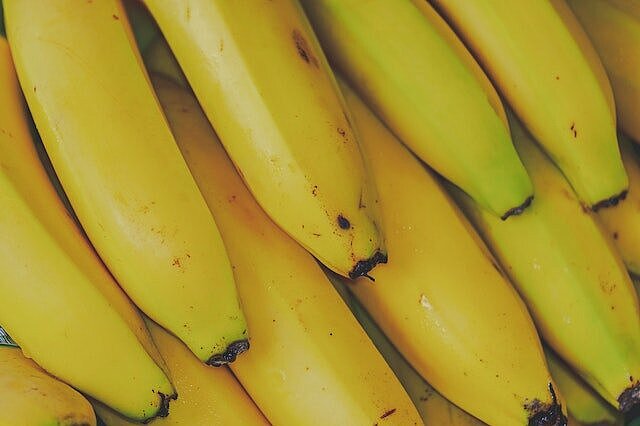Magnesium

How much magnesium does my dog need?
The optimum magnesium intake for dogs depends on various factors, such as your dog's age, weight, activity level and state of health. It is therefore difficult to give a general recommendation. According to the National Research Council (NRC), the daily requirement for an adult dog is around 150 mg per kilogram of dry food. For a 10 kg dog, this would be about 15 mg of magnesium per day. Puppies and pregnant or lactating bitches have a higher requirement, while older or overweight dogs need less magnesium.
Which food sources contain magnesium?
Magnesium is found in many natural food sources, especially in plant foods such as vegetables, fruit, nuts and seeds. However, animal products such as meat, fish, eggs and dairy products also contain magnesium, albeit in smaller quantities. If you provide your dog with a balanced diet of high-quality ingredients, he should generally get enough magnesium. Some examples of magnesium-rich food sources are
- Spinach: 79 mg per 100 g
- Pumpkin seeds: 534 mg per 100 g
- Banana: 27 mg per 100 g
- Salmon: 29 mg per 100 g
- Curd cheese: 11 mg per 100 g
What are the benefits of magnesium for dogs?
Magnesium has many positive effects on your dog's health. For example, it can
- promote muscle function and relaxation
- improve nerve impulses and the transmission of stimuli
- increase bone strength and density
- regulate heart health and blood pressure
- stabilize blood sugar levels
- strengthen the immune system
- Increase stress resistance
What are the disadvantages of magnesium for dogs?
As with all nutrients, the same applies to magnesium: the dose makes the poison. An oversupply or undersupply of magnesium can lead to serious health problems. An overdose can be caused by excessive supplementation or kidney disease, for example. The symptoms of magnesium poisoning can include
- Vomiting and diarrhea
- Loss of appetite and weight loss
- Lethargy and weakness
- Muscle tremors and cramps
- Cardiac arrhythmia and cardiac arrest
An undersupply of magnesium can be caused, for example, by an unbalanced diet, chronic intestinal disease or increased loss through sweating or diarrhea. The symptoms of a magnesium deficiency can be
- Nervousness and restlessness
- Hyperactivity and aggressiveness
- Muscle tension and weakness
- Seizures and epilepsy
- Heart problems and heart failure
How do I recognize an over- or undersupply of magnesium in my dog?
To determine whether your dog is getting enough or too much magnesium, you should have their health checked regularly. This includes a clinical examination, a blood test and, if necessary, a urine test. These tests can provide information about the magnesium level in the blood and urine, as well as possible diseases that affect the magnesium balance. If you are unsure how much magnesium your dog needs or whether he needs a supplement, you should always consult your vet. They can give you a personalized recommendation based on your dog's needs.
Magnesium is an important mineral for dogs that supports many functions in the body. A balanced diet with high-quality food sources should generally ensure an adequate supply of magnesium. However, an oversupply or undersupply of magnesium can lead to serious health problems. It is therefore important to check your dog's magnesium status regularly and adjust it if necessary.
Als je tekenen van overgevoeligheid of vergiftiging bij je hond opmerkt, moet je onmiddellijk je dierenarts raadplegen. Wij zijn geen vervanging voor een dierenarts, maar we proberen zo nauwkeurig mogelijk te zijn. Elke hond reageert anders en we raden je aan een second opinion te vragen of je dierenarts te raadplegen als je twijfelt.
Blijf gezond en zorg goed voor uw trouwe viervoeter! 😊
Vergelijkbaar met Magnesium
Calcium is a chemical element that occurs naturally and is found in many foods. Calcium is primarily responsible for building and maintaining bones and teeth, but it also has other important...
Your dog's potassium requirement depends on various factors, such as its age, size, health and activity level. A general recommendation is that an adult dog needs about 1 to 2 milligrams of...
The optimum amount of zinc for your dog depends on various factors, such as his age, size, state of health and diet. The German Nutrition Society (DGE) recommends a daily zinc intake of 2 to 5...
Iron is a chemical element that occurs naturally. It is an important component of hemoglobin, the red blood pigment. Hemoglobin binds oxygen in the lungs and transports it to cells throughout the...



